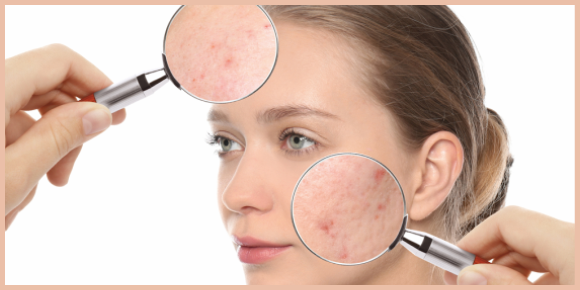Articles
Acne Pigmentation – Here’s Everything You Need to Know About
Acne Pigmentation – Here’s Everything You Need to Know About
You probably want a pimple to heal fast whenever you acquire one. However, even after the pimple has healed, acne can leave a dark mark on your skin .
Dark areas called acne-related skin pigmentation emerge after a blemish heals. Even though the pigmentation is harmless, dealing with it can be a hassle.
Hyperpigmentation acne occur when a dark area appears in the place of a pimple that has gone. Scars caused by pigmentation are more common in those with darker skin tones. Dark patches appear when skin cells produce too much melanin. They’re even worse than pimples in terms of discomfort and distress.
Post-inflammatory skin pigmentation usually appears as a flat patch of skin discoloration. Depending on your skin tone and the degree of the discoloration, it might look like black, white, red, pink, brown, or purple.

Causes
- A wound or irritation causes the skin to become inflamed, such as a pimple, scrape, or rash.
- The skin generates additional melanin which gives the skin its color. After a pimple heals, dark patches may form on the skin.
- Hyperpigmentation may accompany even little pimples and blemishes, so it’s not simply big blemishes that create these patches.
- That said, the more inflamed a breakout is, the larger and darker the Hyperpigmentation spot tends to be.
- Picking or popping a pimple also raises the risk of causing skin pigmentation by increasing inflammation.
Other causes of hyperpigmentation include:
1, Reaction to chemical peels
2, Dermabrasion
3, Sun Brun
4, laser resurfacing
Fading Over Time
- The good news is that, even without therapy, hyperpigmentation can go away over time. However, the operative term here is time.
- Hyperpigmentation can take anywhere from three to 24 months to completely subside, and in some circumstances, even longer.
- The amount of time hyperpigmentation takes to fade is determined by how dark the area is to the surrounding skin.
- The darker the region is in comparison to your normal skin tone, the longer it will take to fade.
- It is not always the case that hyperpigmentation fades away on its own. It’s more or less permanent in certain circumstances.
- Some therapies will be beneficial. Some may not completely remove black spots, but they can lighten them significantly.
- If you don’t want to wait for spots to vanish naturally, therapy might help speed up the process.
Treatment Options
- More minor markings can be faded with over-the-counter (OTC) treatments.
- Can try Lely’s Acne Sensor Gel for controlling pimples and reducing marks.
- For deeper marks or those that have been present for a longer period, a prescription cream may be a better alternative.
- Your dermatologist has several products that will work.
- When you get rid of acne, you will also reduce pigmentation.
- As a result, eliminating acne is a crucial part of managing pigmentation.
- Try Chemical peel which can help to reduce the appearance of hyperpigmentation by removing the epidermis.
- Laser treatment is used to target light beams to reduce hyperpigmentation.
- Regardless of which method of therapy you choose, progress will take time.
What you can do
You can prepare your skin for any treatment by keeping a few things in mind.
Control Your Acne
Your acne should be under control before therapy. Otherwise, each new pimple may result in a new dark spot, and you will never be ahead of the game or achieve the clean, even skin tone you desire.
Use Sunscreen.
Every day, apply sunscreen. Sunlight may darken the skin and slow the fading process.
You need not worry that sunscreen will aggravate your breakouts. There are several sunscreens available for acne-prone skin. Try Lely’s All in One Multifunctioning Cream, which has SPF 25 and helps to heal dark spots, breakouts, and aging.
Vitamin C
Vitamin C is a powerful antioxidant that protects your body from the inside out. Ascorbic acid or L-ascorbic acid is one of its numerous names.
vitamin C is a natural brightening agent and can fade the darkened spots
without changing the natural color of the skin.
Niacinamide
Niacinamide, form of vitamin B-3 increases the collagen production in body
which is helpful to repair the skin damage caused by acne. Use acne products
containing niacinamide like Lely’s acne sensor gel which treats acne and Lely’s
acne squash wash to clean acne prone skin.
Conclusion
Acne pigmentation is common for acne skin but is treatable. After a pimple heals, black patches are called skin pigmentation. It does not harm the skin or leave scars.
In the absence of therapy, skin pigmentation usually fades over time, but it might take a few years. Some blemishes may never go away. OTC creams, prescription drugs, and in-house treatments are all options for treatment.
Make sure your acne is under control and that you apply sunscreen to achieve great outcomes from therapy. Keep a close eye on your skin during therapy for signs of inflammation and irritation.
So, whatever the skin concern is, science and technology provide most of the solutions. We at Lely’s offer products based on science and proven formulas to ensure the safe and best result.

